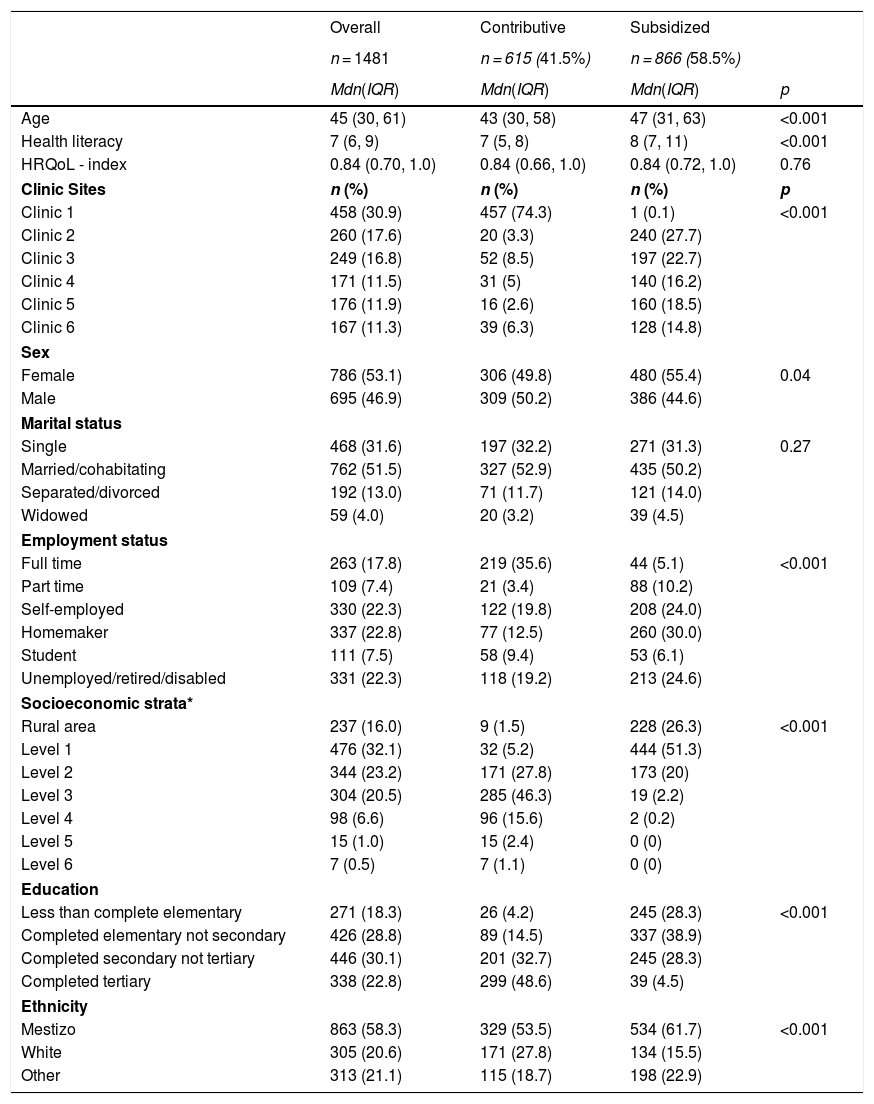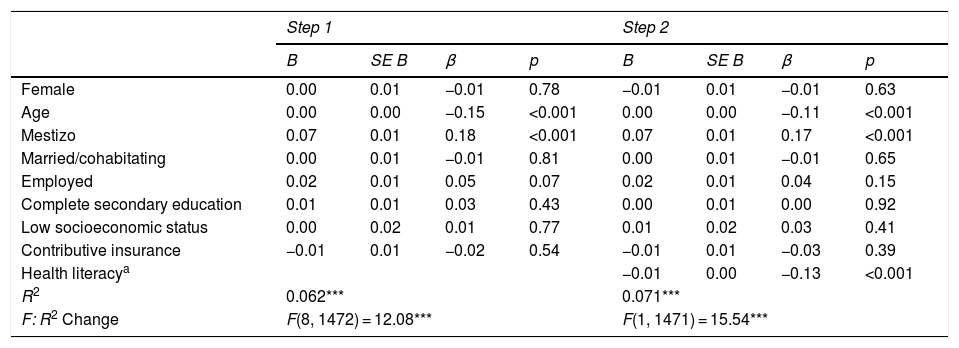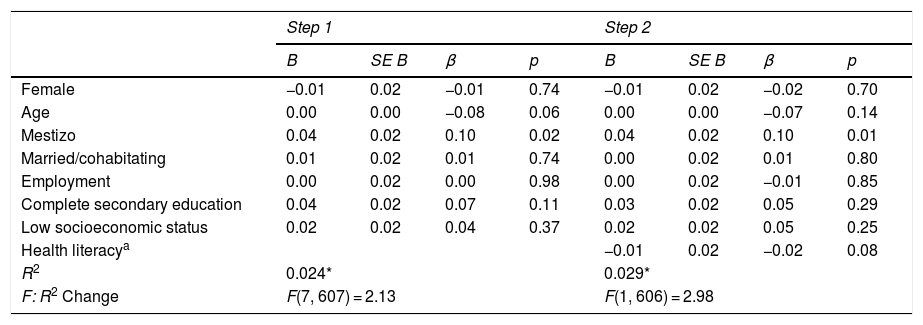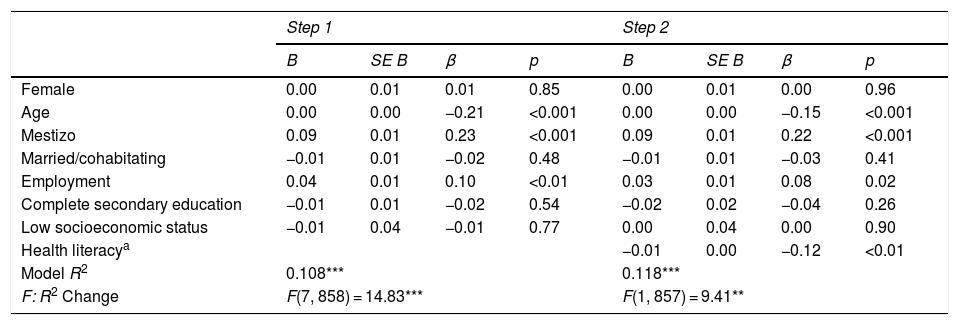Colombia passed Law 100 in 1993 with the goal of providing universal health care coverage, and by 2013, over 96% of the Colombian population had health insurance coverage. However, little is known about how health-related quality of life (HRQoL) and health literacy are related among those with the two most common types of health insurance coverage: subsidized (those with lower incomes) and contributory (those with higher incomes) coverage.
Objectives and methodsIn the current exploratory investigation, data from adults visiting six primary care clinics in Colombia were analysed to examine the relationship between HRQoL (assessed as problems with mobility, self-care, completing usual activities, pain/discomfort, and anxiety/depression), demographics, the two health insurance types, and health literacy. Analyses also assessed whether, within insurance types, health literacy was related to HRQoL.
ResultsResults showed that those with contributory health insurance coverage had greater health literacy than those with subsidized coverage, and this was accounted for by differences in education and socioeconomic status. HRQoL did not differ by insurance type. Although lower health literacy was related to worse HRQoL in the overall sample, in subgroup analyses lower health literacy significantly related to worse HRQoL only among those with subsidized health insurance coverage.
ConclusionTargeting skills which contribute to health literacy, such as interpreting medical information or filling out forms, may improve HRQoL, particularly in those with subsidized insurance coverage.
Colombia emitió la Ley 100 en 1993 con el objetivo de proveer un cubrimiento de salud para toda la población, y para el año 2013, más del 96% de la población colombiana tenía cubrimiento en salud. No obstante, es poca la evidencia sobre como la calidad de vida relacionada con la salud (CVRS) y la alfabetización en salud se relacionan con la vinculación de las personas a los dos regímenes más predominantes en el sistema de salud colombiano: el régimen subsidiado (para personas con bajos ingresos) y el régimen contributivo (para personas con mayores ingresos).
Objetivos y métodosEn esta investigación, se analizaron datos de adultos que acudieron a seis centros de atención primaria en salud en Colombia con el fin de determinar la relación entre CVRS (evaluada a través de componentes como problemas de movilidad, autocuidado, realización de actividades usuales, dolor/disconfort y ansiedad/depresión), factores sociodemográficos, tipo de afiliación al régimen de salud y alfabetización en salud.
ResultadosLos resultados mostraron que las personas afiliadas al régimen contributivo tenían mayor alfabetización en salud que aquellas afiliadas al régimen subsidiado, lo cual se puede explicar por diferencias a nivel educativo y estatus socioeconómico. Para CVRS no hubo diferencias en cuanto a tipo de régimen en salud. Aunque una menor alfabetización en salud se vio relacionada con peor CVRS en la muestra general, en análisis de subgrupos solo se mantuvo esta tendencia en el grupo de personas con régimen de salud subsidiado.
ConclusionesEl enfoque en habilidades que determinan parte de la alfabetización en salud, como interpretación de información médica o llenar cuestionarios, puede mejorar la CVRS, particularmente en las personas afiliadas al régimen subsidiado.









